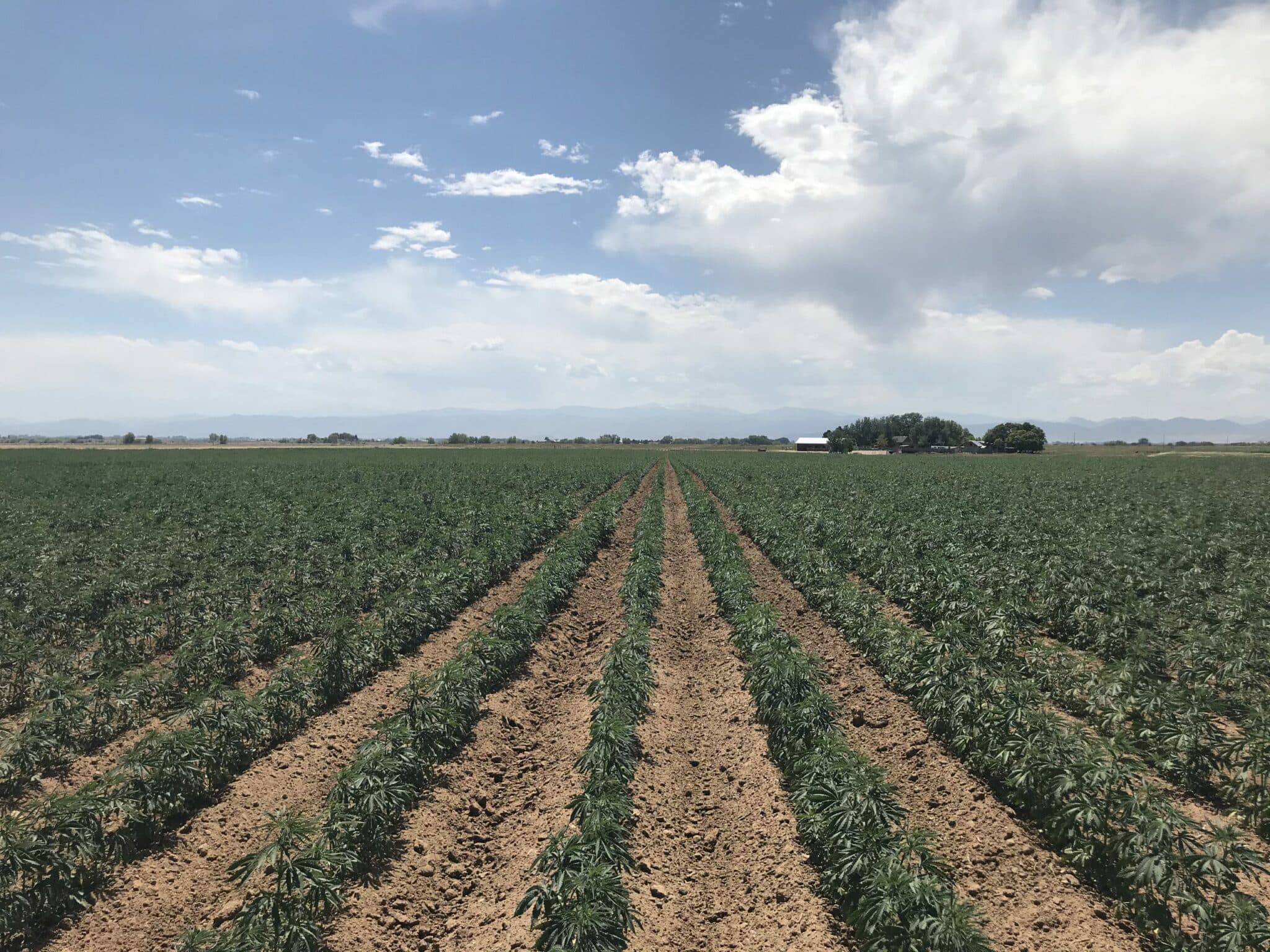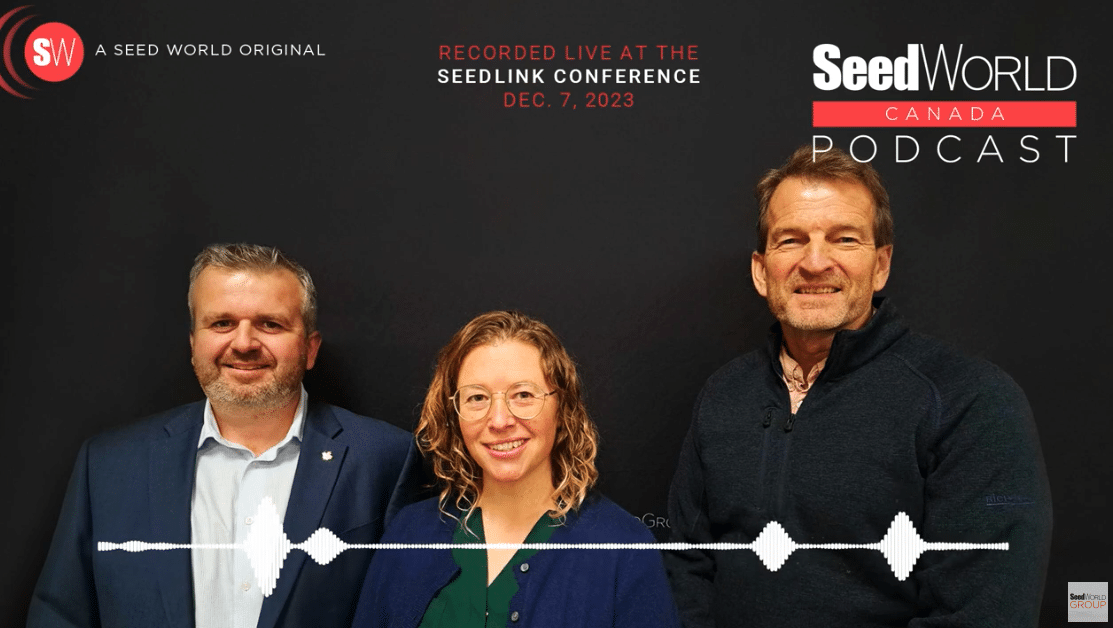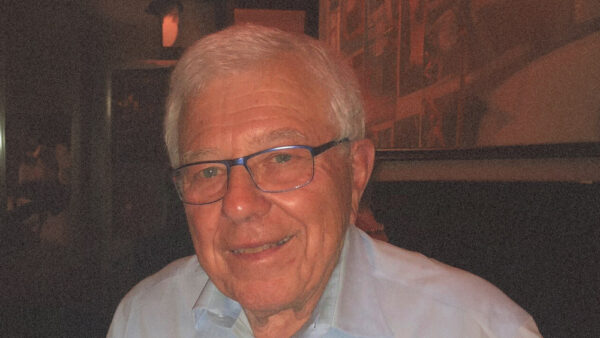The U.S. hemp industry has been slowly building itself up, but what’s been going on lately?
Hemp. It’s still a word that can cause some grief and controversy in the United States.
The industry has been working to build itself up in different areas of the United States for years. But since 2018, the United States has been working to build up the hemp industry as a nation — states have been sending in plans for their hemp growing program, associations have begun across the country and the hemp seed industry is taking off at full speed.
Standardizations and New Regulations
One such company is New West Genetics — a hemp seed company founded in 2014, based out of Colorado.
Wendy Mosher, CEO of New West Genetics, says this wasn’t in her original career plans, but she, her husband John McKay, and their business partner Rich Fletcher saw an opportunity in hemp.
“Our existence is half luck and half expertise,” Mosher says. “John is a professor of plant genetics at Colorado State University, and at the time, Rich was leading Cargill’s canola program. The opportunity was too big for us to pass up. “Of course every business owner has some ups and downs, but I’d say they’re a bit steeper in hemp. It was like Prohibition — we had a lot of speculators who had no experience in hemp or agriculture rush in with poor execution, and questionable business ethics. We feel grateful to have weathered that storm, and are still here seven years later.
“We were working in a brand-new crop, that had absolutely no adaptation to, nor agronomic improvement in the U.S.,” she says.
One thing that Mosher notes about working in the hemp industry: it’s been much smoother for them to function in Colorado.
“Being in Colorado has made it easier for us,” Mosher says. “We’ve always had a wonderful relationship with our Department of Agriculture, and besides Kentucky, Colorado was one of the only states that had a strong start in 2014 with regulations for hemp ready to go.”
However, with the legalization of industrial hemp production, new standardizations are making it easier on the business.
“The Interim Final Rule (IFR) was issued in 2018 and was very welcomed for us,” Mosher says. “We’d been anticipating and hoping for Federal standardization. It was needed in the industry to level the playing field across states — especially in the shipping and testing areas.”
Although the IFR has made it a bit easier and more standard for her business, Mosher notes that others in the industry haven’t appreciated the regulations as much.
“It’s mainly due to the CBD genetics side,” she says, explaining that it’s difficult and takes a long time to breed good, CBD seed that matches the 0.3% THC level required by the IFR.
“There’s an effort in the industry that wants to raise that 0.3% level to 1%,” Mosher says.
However, Mosher notes that this isn’t something ideal for New West Genetics.
“When you’re making a good, stable seed for farmers, the higher THC level isn’t necessarily good for international trade,” she says. “We like the 0.3% rule because it enables smooth trade, shipping and customs, so we do not lobby for a higher THC level.”
However, Mosher says there’s another side of regulation that really piques her interest.
“The use of hemp grain in animal feed still needs approval by the FDA — and the fact few if any submissions have been made is really hindering the industry’s growth,” she says.
Mosher explains that industrial hemp grain, so far, has been one of the only crops approved for human-use before it was approved for animal-use.
“We want to see hemp grain approved for animal feed ingredients,” she says. “I work with a group called the Hemp Feed Coalition, and we’ve been working on looking at how to support companies and researchers to get the application packages to the FDA through, because there’s such a large demand for hemp as animal feed. I have fielded calls requesting hemp grain to feed 5,000 head of cattle, to formulate for dog food, for poultry, and for horses.”
In addition, Mosher comments, “There are studies supporting that the omega-3s in hemp grain increase the amount of omega-3s in laying hens’ eggs — a clear margin advantage when you look at eggs on store shelves.
“Things are still moving, and the FDA has given us good direction,” Mosher says. “After that gets action, it would be fantastic. Hemp isn’t a rival for soybean yet, but watch out — once it gets to scale, it certainly could be.”
Finally, Mosher says one of the biggest improvements in the industrial hemp industry is talking about certified hemp seed.
“We’re the first company in the United States to gain seed certification for a U.S. hemp bred variety,” she says. “That takes time, and it’s challenging! And that’s why farmers are having issues finding certified hemp seed.”
Mosher says in order to qualify as certified seed, you have to ensure your variety does what you say it does, that it has genetic purity and attains a number of other metrics outlined in federal seed law.
“We received our first certified seed in 2017 from the Colorado Seed Growers Association, in cooperation with the Colorado Department of Ag, which first validated that our THC levels were federally compliant, below 0.3% total THC.” Mosher says. “Not every state seed association does the coordination for validation of the THC content, but we certainly hope they will — otherwise, you could easily sell high THC cannabis seed as hemp, and that would reduce most motivation for breeders to create compliant seed.”
Mosher says if you have questions about whether or not your seed is certified, make sure to ask.

“We’ve seen people forging the COAs on cannabinoids, as well as certified seed tags, so we encourage everyone to call labs and verify reports, as well as calling the seed certifying agency in your state.” she says.
One encouraging piece is that many university Extension programs are becoming a center of excellence and knowledge for all things hemp, “they’re another great resource for growers.”
Associations Lobbying for Hemp
Not only are seed companies working hard for our hemp industry, but new associations are popping up to lobby and fight for the industry.
One such organization began in 2019 — the National Industrial Hemp Council (NIHC). And if there’s one thing for certain ‚Ķ they’re passionate about hemp.
“A lot of people don’t look at hemp like they look at other consumer projects,” says Larry Farnsworth, president of Gavel Public Affairs and media contact for NIHC. “It’s always been kind of a mysterious thing — George Washington grew hemp. In 1945, when we invaded Normandy, the parachutes were made of industrial hemp. The hemp market is expanding and growing, and we’re really excited about it.”
Recently, the U.S. Department of Agriculture (USDA) reopened comments for the IFR — originally states were required to have their final approved plans by Oct. 31, 2020. Unfortunately, COVID-19 made it difficult for state legislatures to meet and get their industrial hemp plans approved by the USDA. The NIHC lead the charge for this reopening by partnering with the National Association of State Departments of Agriculture (NASDA).
“This is an effort we’ve been leading and hemp farmers across the country should welcome this opportunity,” said Patrick Atagi, board chairman of the NIHC. “With USDA re-opening the comment period, hemp industry stakeholders have the chance to tell USDA directly why it should extend the hemp pilot program in wake of the challenges they face with their individual states not being able to submit plans for approval.
“We certainly hope that this announcement is an indication that USDA is moving in the direction of extending the hemp pilot program for another year,” he says. “The NIHC will be filing comments and we’re encouraging our individual members to do so as well.”
Another major thing that the NIHC is pursuing is the creation of an industrial hemp checkoff program.
“We want to be the go to successful program like the Beef Checkoff,” says Patrick Atagi, board chairman of NIHC.
However, Atagi says that they’ve run into a bit of contention on this program.
“A lot of companies might ask: ‚ÄòWhy would I pay for another program’s advertising?'” he says. “For us, we want to instead look at the educational benefits a checkoff program could provide. We want it to be very deliberate and thoughtful, because hemp is a delicate subject.”
For Atagi, that means focusing on expanding knowledge and marketing further, and not just in CBD.
Farnsworth agrees, and says that they’re working to ensure their checkoff program, if created wouldn’t serve the needs of just one company.
“It has to promote the industry,” he says.
As an example, Atagi says that a checkoff program would help the public understand more about hemp.
“We work with plenty of major fabric and clothing companies,” he says. “Let’s say you make a jacket out of hemp and hemp fiber. By teaching the public about hemp, you’d prevent someone who buys a hemp jacket from saying, ‚ÄòHey, I bought a coat made out of hemp and got high from it.’ A checkoff program can come in to immediately address this and say in response, ‚ÄòNo, you can’t get high from industrial hemp.'”
Right now, though, a checkoff program is still in the future. However, NIHC will continue to lobby for the industrial hemp industry.













